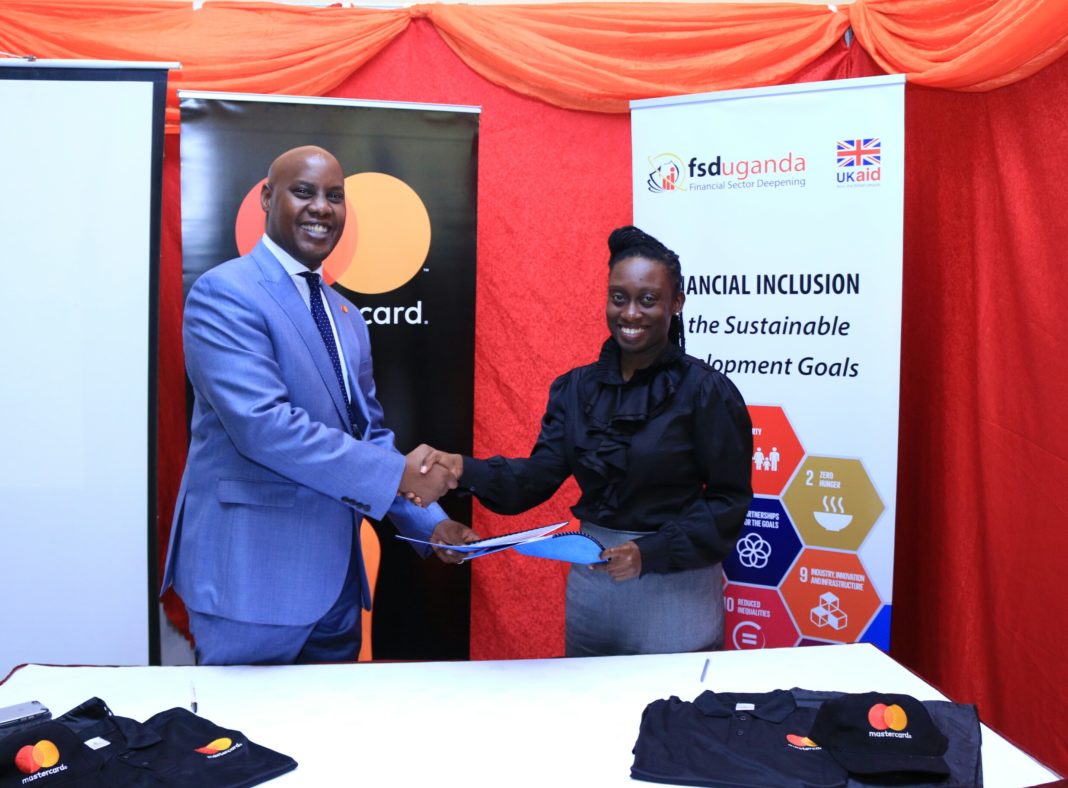Over half of Uganda’s adults are forced to keep their savings at home because of a lack of access to formal financial services, in the process slowing the country’s growth as large numbers of citizens remain in exclusion.
To reverse this trend, Mastercard and Financial Sector Deepening Uganda (FDSU) have partnered to develop financial solutions that will improve the livelihoods of Ugandans and also strengthen the country’s economy.
The partnership, announced during Financial Inclusion Week, will allow Mastercard, including the Mastercard Labs for Financial Inclusion, and FSDU to focus on the key sectors like education, agriculture, trade and health by creating and rolling out secure and simple digital payment solutions.
“Digital payments have played an important role in connecting Ugandans to financial services securely and seamlessly: 53 out of every 100 Ugandan adults have transacted because of mobile money solutions2, for instance, which shows us that the ability to include people in the economy is driven by innovative digital solutions,” said Chris Bwakira, Vice President and Area Business Head, East Africa at Mastercard.
According to Mr. Bwakira, Ugandans have also indicated a healthy appetite for digitalized consumption, mobile in particular.
“Mobile penetration sits at 65 percent and continues to grow rapidly, illustrating that as businesses, we should be targeting solutions that are convenient for citizens and that are easily accessible and available on platforms that they have adopted and use regularly,” Mr. Bwakira said.
According to Mr. Bwakira, Mastercard Labs for Financial Inclusion is working on an education payment project in Uganda, to be followed by an agricultural payments project next year.
Solutions developed by Mastercard and FSD Uganda will seek to close gaps and build on the education pilot, eventually linking to other initiatives in trade and health, which are also core sectors.
Approximately 60 percent of Uganda’s citizens are involved in agriculture, making pioneering tools and solutions in these areas a driver of growth.
The two partners have also committed to focus on meeting objectives in specific areas, most notably in protecting consumers, driving engagement with government surrounding policy, as well as carrying out research and partnering with other critical stakeholders to share knowledge and expertise around financial inclusion.
Other areas of interest include customer education and awareness building aimed primarily at people who have been traditionally excluded from banking and financial services, engagement with the Ugandan government around policies creating a more enabling environment for investment in financial services and information technology.
“Uganda takes building a more inclusive economy extremely seriously, as evidenced in the recently launched National Financial Inclusion Strategy 2017-2022.
Strategic partnerships between organizations with the same values such as FSD Uganda and Mastercard, are an important step on the journey towards creating a country where financial services are accessible, affordable and beneficial to all,” said Jacqueline Muna Musiitwa, Executive Director at FSD Uganda.
Bwakira agreed, adding that a greater roll out and uptake of digital payment solutions will feed into Uganda’s overall National Financial Inclusion Strategy, which runs until 2022 and aims to increase access to formal financial services.
“Addressing the challenges that face ordinary Ugandans, particularly rural and low-income citizens, cannot be solved overnight, but with continued partnerships and the introduction of tools and services that allow more people to access formal financial services, we are making definitive strides in the right direction,” he noted.








